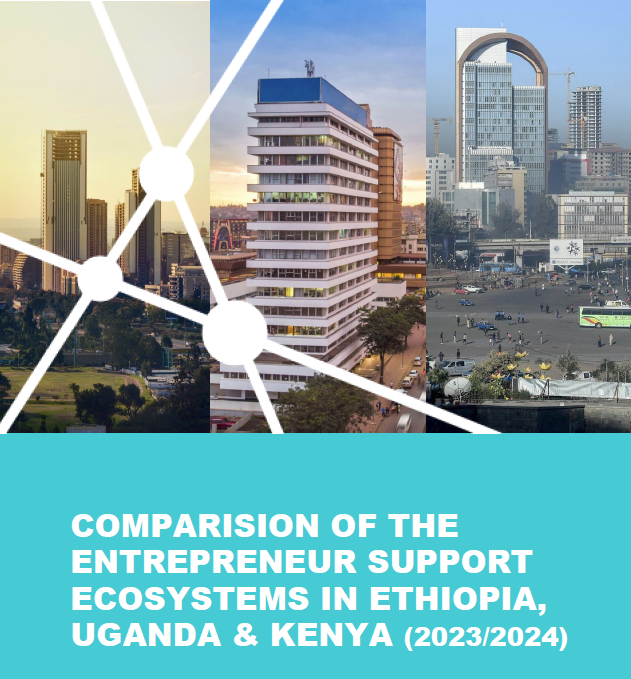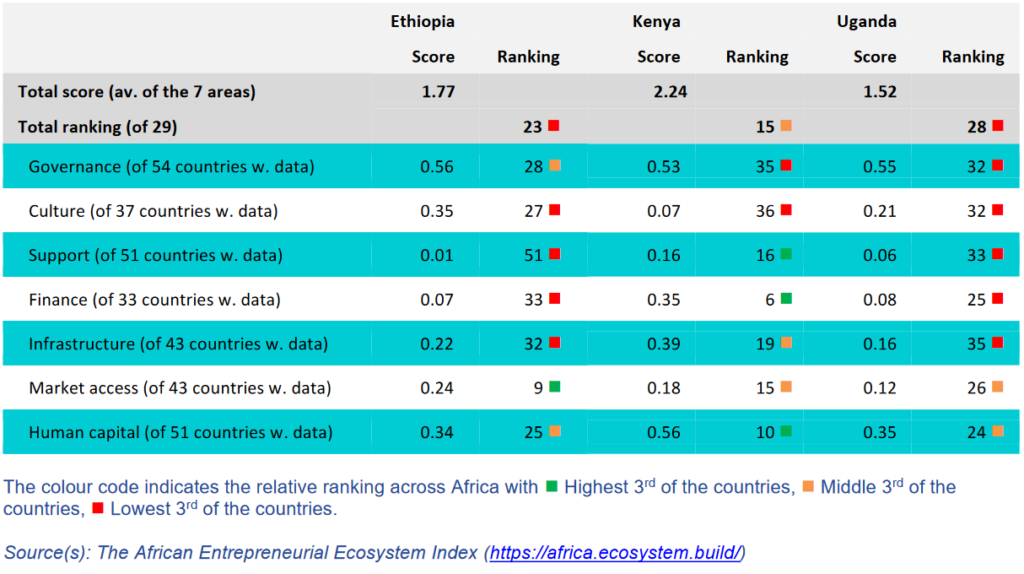
The research and ESO ecosystem comparison are part of BIC Ethiopia, which seeks to strengthen Ethiopian entrepreneur support through various ecosystem-building and supporting activities and efforts. BIC Ethiopia is an EU-funded project implemented by sequa together with five partner organisations. One of the partners, GrowthAfrica from Kenya, developed the benchmarking report.
The report provides a comparison of the entrepreneur support ecosystems in Ethiopia, Uganda, and Kenya by outlining benchmarkable economic and ecosystem indicators based on the current state of the three countries.
Key insights and findings:
Across the region the capital cities as the cultural, political, and economic hubs play pivotal roles in shaping their respective countries’ entrepreneurial climates. Secondary and tertiary cities, serve as crucial commercial and administrative centres, are increasingly influencing regional economic activities and experience strengthened entrepreneurial support activities with Kenya and Ethiopia showing strong developments in geographical inclusion.
Entrepreneur Support Organisations (ESOs) are growing in numbers across the region and focus need to move from “more” ESOs to “better” and more specialised ESOs and activities.
East Africa has a leading role across Africa in the formation of ESO associations to advance the work, resourcing and agenda of ESOs. The associations are evolving and learning as they slowly build their systems, structures and capacity while challenged with funding and serving the needs of their members.

Comparative analysis:
The macroeconomic indicators covering GDP growth, investment climates, and infrastructural developments highlights Kenya’s advanced economic status compared to its peers. Nairobi being a continental hub for investors furthermore strengthens its position.
Examining R&D expenditures, educational outputs, and innovation metrics, these are pointing at Kenya’s leadership in fostering a conducive environment for entrepreneurial innovation. This is further enhanced by the country’s digital transformation and digital readiness assessing internet penetration rates, digital infrastructure, and the impact of digital transformation on business operations.
Challenges and opportunities:
While Kenya shows significant advancements in entrepreneurial policies and digital infrastructure, Ethiopia and Uganda face challenges in policy implementation and infrastructure development, affecting their entrepreneurial ecosystems. Across the region there are significant funding and investment challenges where private investors alongside development partners and government funding could unlock growth and opportunities if increasing access to capital for startups and SMEs.

